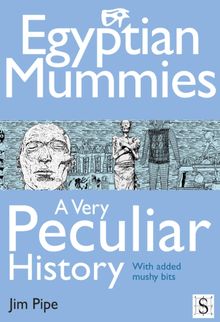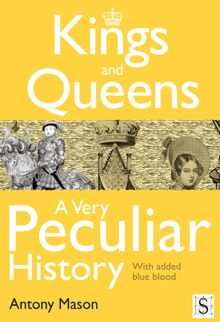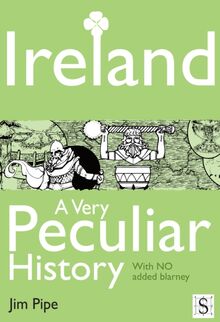-
 Univers
Univers
-
 Ebooks
Ebooks
-
 Livres audio
Livres audio
-
 Presse
Presse
-
 Podcasts
Podcasts
-
 BD
BD
-
 Documents
Documents
-
- Cours
- Révisions
- Ressources pédagogiques
- Sciences de l’éducation
- Manuels scolaires
- Langues
- Travaux de classe
- Annales de BEP
- Etudes supérieures
- Maternelle et primaire
- Fiches de lecture
- Orientation scolaire
- Méthodologie
- Corrigés de devoir
- Annales d’examens et concours
- Annales du bac
- Annales du brevet
- Rapports de stage
La lecture à portée de main
Vous pourrez modifier la taille du texte de cet ouvrage
Découvre YouScribe en t'inscrivant gratuitement
Je m'inscrisDécouvre YouScribe en t'inscrivant gratuitement
Je m'inscrisEn savoir plus
Vous pourrez modifier la taille du texte de cet ouvrage
En savoir plus

Description
Sujets
Informations
| Publié par | Andrews UK |
| Date de parution | 03 février 2012 |
| Nombre de lectures | 0 |
| EAN13 | 9781908759467 |
| Langue | English |
Informations légales : prix de location à la page 0,0300€. Cette information est donnée uniquement à titre indicatif conformément à la législation en vigueur.
Extrait
Title Page
VICTORIAN SERVANTS, A VERY PECULIAR HISTORY
With added elbow grease
Written by
Fiona Macdonald
Created and designed by David Salariya
Publisher Information
First published in Great Britain in MMXII by Book House, an imprint of
The Salariya Book Company Ltd
25 Marlborough Place, Brighton BN1 1UB
www.salariya.com
www.book-house.co.uk
Digital edition converted and distributed in 2012 by
Andrews UK Limited
www.andrewsuk.com
Editor: Jamie Pitman
Assistant editor: Jodie Leyman
© The Salariya Book Company Ltd MMXII
All rights reserved. No part of this publication may be reproduced, stored in or introduced into a retrieval system or transmitted in any form, or by any means (electronic, mechanical, photocopying, recording or otherwise) without the written permission of the publisher. Any person who does any unauthorised act in relation to this publication may be liable to criminal prosecution and civil claims for damages.
Every effort has been made to trace copyright holders. The Salariya Book Company apologises for any omissions and would be pleased, in such cases, to add an acknowledgement in future editions.
Visit our website at
www.book-house.co.uk
or go to
www.salariya.com
for free electronic versions of:
You Wouldn’t Want to be an Egyptian Mummy!
You Wouldn’t Want to be a Roman Gladiator!
You Wouldnt Want to Join Shackleton’s Polar Expedition!
You Wouldn’t Want to Sail on a 19th-Century Whaling Ship!
Dedication
To all servants today
FMacD
Quotes
‘No man is a hero to his servants.’
French writer and thinker Michel de Montaigne (1533–1593)
‘Good masters and mistresses [are] quite as rare as good servants.’
British actress Fanny Kemble (1809–1893)
‘A good mistress will make a good servant.’
Popular Victorian saying
‘Ladies and gentleman are permitted to have friends in the kennel, (among pet dogs and horses) but not in the kitchen’ (among servants).
Irish dramatist George Bernard Shaw (1856–1950)
‘The lowest work I think is honourable in itself and the poor drudge (hard-working servant) is honourable too.’
Maid-of-all-work Hannah Cullwick (1833–1909)
INTRODUCTION: ‘The greatest plague in life’*
(* Title of a humorous book about badly behaved servants by Augustus and Henry Mayhew, 1847)
Imagine! You’ve travelled back in time to 1860, and you’re a woman servant. You’ve been working extra-hard this month, cleaning 83 pairs of dirty boots, plus all the windows and mirrors, in addition to your usual household duties. Looking down, you remark, with pride in all you have done, that ‘My hands are very coarse and hardish.’ But then your employer comes along. Her hands are white and soft. Although it’s July, ‘She lays her hand[s] lightly on mine for me to feel how cold they are’ (from the diary of Hannah Cullwick).
What’s going on? Is your employer unwell? Is she lonely or asking for sympathy? Has she had bad news, or a sudden shock? Or is her fine dress just too thin for a chilly English summer?
No, no, no, no and no. We’re puzzled, but you, the servant, understand the gesture. Your employer’s gentle, delicate touch is really a stern warning. She’s keeping you in your place; reminding you who you are. ‘We [servants] say it’s to show the difference, more than anything.’
What difference? Not just the contrast between hands: white and rough, smooth and hard, workaday and leisured. But also the vast, unbridgeable social gap between ‘them’ and ‘us’; between Victorian employers and their servants.
The Victorian age (1837–1901) was a time when more British people than ever before worked as domestic (household) servants. It was also a time when more British families than in any earlier era had servants to look after them. In this book we will look at the men and women who joined in this Victorian servant ‘population explosion’. What were their lives like?
Who were the ‘servant classes’ (as the Victorians called them)? Where did they come from? How did they find a job? And why on earth did they leave the freedom of their own homes and families to live in someone else’s household? Even more perplexing: how could clever, capable, thinking, feeling, fully grown men and women let themselves be ordered around – and despised, as in the true story above – by people who were richer, grander, more powerful than themselves?
Today, looking back, we find the Victorian choice to spend a life obediently ‘in service’ very hard to understand. But we must remember: almost all servants could be sure, while they worked, of life’s three great essentials – food, clothes and lodgings. Some also found companionship and care from colleagues and/or employers – though many other Victorian men and women were not so lucky, as we shall see.
Without whom…
To Victorian employers, servants were rather like troublesome teenage children: an expense, a worry, a responsibility, to be kept out of sight for as much of the time as possible. But they were essential.
The Victorian age was a time of great advances in science, medicine, industry, technology, travel, exploration, media, art and design. Unlike their employers, servants did not make exciting discoveries, run great companies, pass important new laws or conquer a mighty empire – but they cared for (and cleaned up after) every single one of the people who did. Without servants, the Victorian age would have been very different.
Worn out and thrown away
Sad to say – and shockingly, to modern eyes – a long lifetime of loyal service was not always rewarded. Though some servants were looked after by their employers until death, in Victorian law this was not compulsory. Many masters and mistresses dismissed servants who were getting old or falling ill. (Their excuses: they had no spare room; they could not afford to keep them; they would not pay for ‘idleness’.) If they were fortunate, servants found a home with friends or relations, handing over any savings they had stashed away to pay for their keep. But if they had no-one to turn to, then they had to beg for charity from churches or from women’s clubs set up to help the needy. If no help came, their only refuge was the workhouse: a grim, prison-like institution, and a most miserable place to end their days.
CHAPTER ONE: ‘Domestics no longer know their place’
(*Mrs Beeton, Book of Household Management , 1861)
The year is 1851; Queen Victoria and her clever, handsome husband, Prince Albert, are at the peak of their royal prestige and popularity. Britain proudly claims to be ‘the workshop of the world’, and controls a mighty empire ‘on which the sun never sets’. In London, crowds flock to admire the most up-to-date British art, science, technology, industries and inventions, all grandly displayed in a Great Exhibition.
Faces in the crowd
Now, travel back in time to imagine that you are strolling through the streets of London with the crowds heading for that Exhibition, or visiting another fine Victorian city, such as Manchester, Glasgow or Liverpool. Or perhaps you’re arriving – by horse-drawn coach or the exciting new steam railway – at a busy country town on market day. As you gaze at the men, women and children around you, it’s clear that their lives and lifestyles are not all the same.
Some Victorians are clearly rich: well fed, well dressed, confident and commanding. Others – thin, weak, pale and dressed in rags – are pitifully poor. Some are obviously tradesmen – such as shopkeepers in their long aprons, or chimney sweeps carrying bundles of sooty brushes. There are beggars, flower sellers, uniformed police and wandering musicians. But the two most important – and largest – groups of workers in Britain in 1851 are nowhere to be seen. They are busy – out in the fields, or shut away indoors. Who are they?
According to the newly completed national census of 1851, Britain’s most numerous workers are farm labourers, who produce the nation’s food – and domestic servants: cooks, cleaners, children’s carers and many more household helpers who live and work in other families’ homes.
In 1851 there are almost 1.8 million farm workers and nearly 1.04 million household servants in England, Scotland and Wales, out of a total adult population of around 15.75 million. That’s not counting thousands more domestic servants working on farms. This means that one out of every 14 or 15 people of working age (over 10 years old, in Victorian times) is a servant.
In 1851, there are over 900,000 female domestic servants – but only around 130,000 male ones.
‘Numerous and universal’
Seen or unseen, domestic servants were everywhere in Victorian times. By 1871 an astonishing one in eight of all adult women in England and Wales was a household servant, cleaner or washerwoman – a total of 1,204,477 busy – and often exhausted – females.
In 1871 there were also 124,333 male household servants – though their numbers were falling fast, as working men sought better-paid, more independent employment in mines, iron foundries, railways, dockyards and factories.
No wonder one nineteenth-century book offering advice to servants could claim that:
‘No relations in society are so numerous and universal as those of Masters and Servants.’
S. and S. Adams, The Complete Servant, 1825
A few nineteenth-century writers argued that servanthood must be a system designed by God – and quoted the Bible to prove it:
‘The various stations of life are appointed by that
-
 Univers
Univers
-
 Ebooks
Ebooks
-
 Livres audio
Livres audio
-
 Presse
Presse
-
 Podcasts
Podcasts
-
 BD
BD
-
 Documents
Documents
-
Jeunesse
-
Littérature
-
Ressources professionnelles
-
Santé et bien-être
-
Savoirs
-
Education
-
Loisirs et hobbies
-
Art, musique et cinéma
-
Actualité et débat de société
-
Jeunesse
-
Littérature
-
Ressources professionnelles
-
Santé et bien-être
-
Savoirs
-
Education
-
Loisirs et hobbies
-
Art, musique et cinéma
-
Actualité et débat de société
-
Actualités
-
Lifestyle
-
Presse jeunesse
-
Presse professionnelle
-
Pratique
-
Presse sportive
-
Presse internationale
-
Culture & Médias
-
Action et Aventures
-
Science-fiction et Fantasy
-
Société
-
Jeunesse
-
Littérature
-
Ressources professionnelles
-
Santé et bien-être
-
Savoirs
-
Education
-
Loisirs et hobbies
-
Art, musique et cinéma
-
Actualité et débat de société
- Cours
- Révisions
- Ressources pédagogiques
- Sciences de l’éducation
- Manuels scolaires
- Langues
- Travaux de classe
- Annales de BEP
- Etudes supérieures
- Maternelle et primaire
- Fiches de lecture
- Orientation scolaire
- Méthodologie
- Corrigés de devoir
- Annales d’examens et concours
- Annales du bac
- Annales du brevet
- Rapports de stage




















